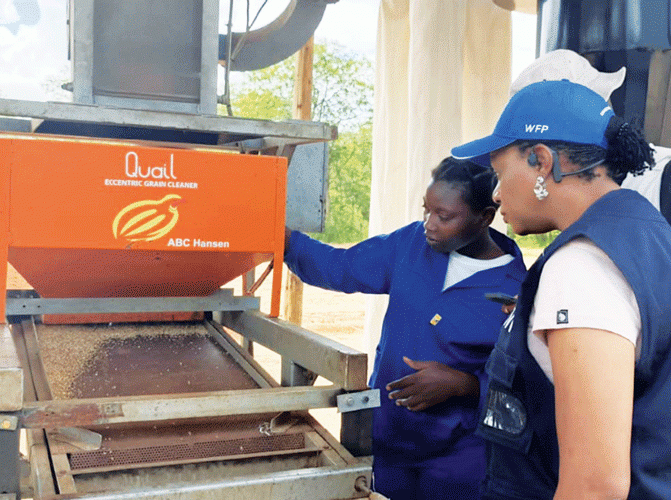
THE government has come under the spotlight for fast-tracking the contentious Private Voluntary Organisations (PVOs) Amendment Bill without factoring in input from the civil society.
The first version of the Bill was published in November 2021, with its first reading in the National Assembly in February 2022, before it proceeded to crawl its way through the parliamentary processes until it was finally passed by the Senate in 2023.
President Emmerson Mnangagwa, however, sent it back to Parliament for reconsideration.
The National Assembly did not reconsider the Bill until Parliament was dissolved immediately before the 2023 general election, so the Bill lapsed and could not be revived.
The new Bill is the government’s second attempt to enact legislation to control PVOs more stringently.
In a joint statement, the country’s 23 civil society organisations, among them Alliance of Community-Based Organisations, Accountability Lab Zimbabwe, Amnesty International Zimbabwe, Catholic Commission for Justice and Peace, Content Creators Network Zimbabwe, Southern Africa Parliamentary Support Trust and many others, said the Bill had sailed through the Senate without their input.
“The Bill has now been passed by the National Assembly and sailed through the Senate on October 17, 2024 without encompassing CSO input. For example, the Bill provides for a three-month transitional period for registration.
“Further, it retains excessive powers in the hands of the registrar and minister, thereby undermining and limiting the powers of the PVOs board. CSOs have, throughout the several mutations of this Bill, argued against the entrenchment of power in the hands of the registrar,” the CSOs said.
- In Full: eighteenth post-cabinet press briefing June 28, 2022
- Unicef supports basic water supply services to 1, 2 million people – report
- Disadvantaged girl child needs protection
- Disadvantaged girl child needs protection
Keep Reading
“The Bill does not mention that Zimbabwe was removed from the FATF [FATF] grey list in March 2022. The Bill does not factor in changes that were made to FATF recommendation number 8 to mitigate against unintended consequences of applying this recommendation which include over-regulation of the NGO sector.”
FATF is an intergovernmental organisation founded in 1989 on the initiative of the G7 to develop policies to combat money-laundering and to maintain certain interests.
In 2001, its mandate was expanded to include terrorism financing.
However, Justice, Legal and Parliamentary Affairs minister Ziyambi Ziyambi defended the Bill saying some charity organisations were involved in money-laundering and politics.
“When this Bill was first introduced, we had received communication that charitable trusts are being misused as a means for channelling in funds, to fund terrorism and other criminal activities or to launder the proceeds of criminal activities. For instance, buying properties in Zimbabwe and other countries,” he said.
“Government is aware that some so-called charities act in a politically partisan manner by directing money to favoured political parties or candidates at the expense of other political parties or candidates.
“Partisan assistance using foreign money or money collected from the public under the guise of charity must never be allowed to influence the outcome of national or local elections,”
Meanwhile, NGOs have bemoaned lack of international accounting standards within their operational environment saying it makes it hard for them to be transparent.
Speaking during the Institute of Chartered Accountants of Zimbabwe (ICAZ) second edition of NGOs Conference in Kariba, NGOs expressed concern over lack of international accounting standards within their operating environment which had negatively impacted the sector.
The conference, which started yesterday and ends today, is being held under the theme Re-imagining NGO Innovation, Optimisation, Sustainability and Governance, Fostering Accountability in Building NGO Professional Stronghold.
Financial Reporting Guidance for Non-Profit Organisations project director Samantha Musoke said there was no international accounting standards for non-profits.
“So this is what the project is aiming to alleviate. Now, when we talk about, and I’m sure as people in the non-profit sector, you are often hearing or part of conversations around locally-led development, decolonisation, shifting power, and often accountants aren't at the centre of those conversations. It feels a bit outside the realm of what we accountants can deal with,” she said.
ICAZ senior vice-president Emmanuel Mudefi said NGOs had a big role to play in society, henceforth there was a need for them to be innovative and transparent.
“The country and the world at large face unprecedented challenges and the NGOs must rise to the occasion with renewed vigour and vision.
“So our focus will be on four pillars, namely the first one being innovation, the second one being optimisation, then sustainability and governance,” he said.











